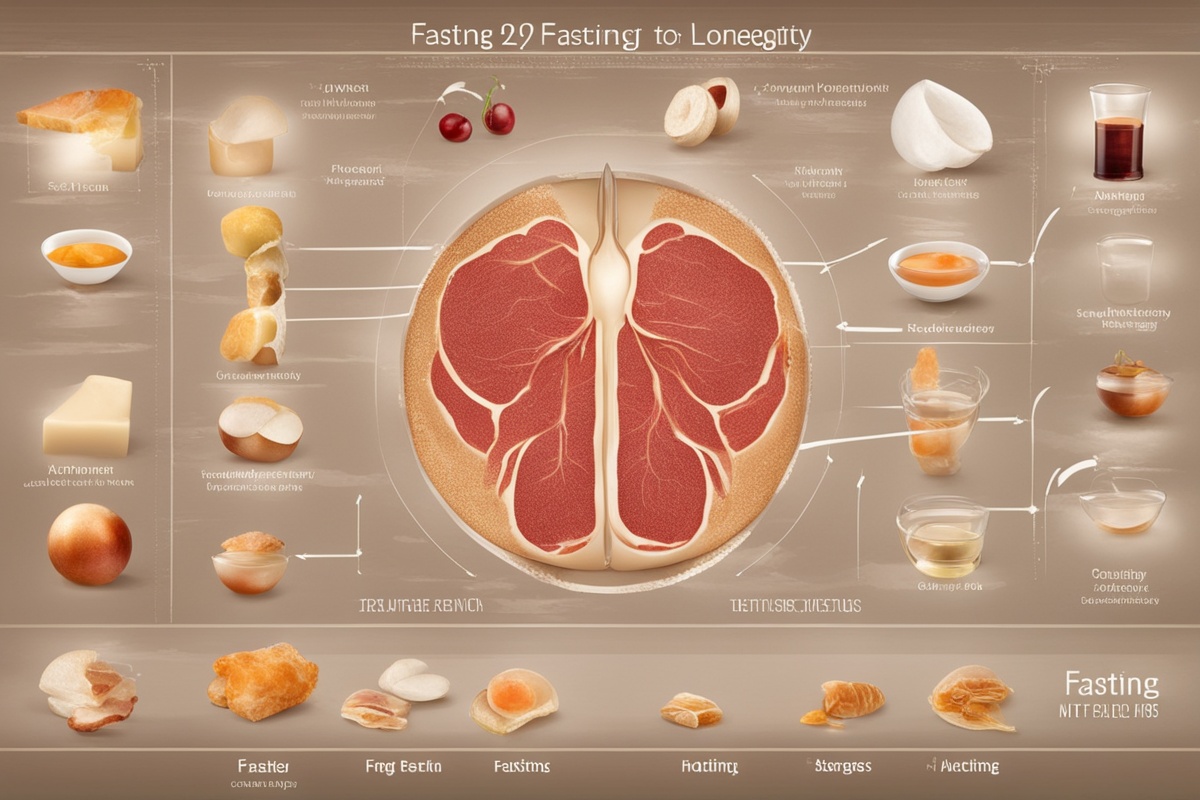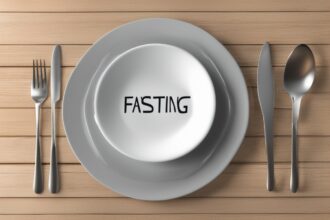Hey there, health enthusiasts! If you’re intrigued by the idea of living a longer, healthier life, you’ve likely stumbled across the concept of fasting longevity—a powerful synergy between fasting practices and extending your lifespan. Fasting isn’t just a trendy diet; it’s a time-tested approach that’s been around for centuries, rooted in both cultural traditions and, more recently, cutting-edge science. Whether you’re new to intermittent fasting or a seasoned pro at extended fasts, this deep dive will explore how fasting can be a key to unlocking longevity. Let’s unpack the science, bust some myths, and share practical tips to help you harness the benefits of fasting for a vibrant, long life.
What Is Fasting Longevity, and Why Does It Matter?
At its core, fasting longevity refers to the practice of fasting—abstaining from food for specific periods—to promote health benefits that may extend your lifespan. This isn’t about starving yourself; it’s about strategically giving your body a break from constant digestion to trigger powerful cellular processes. Research suggests that fasting can reduce the risk of chronic diseases like diabetes, heart disease, and even certain cancers, all of which are major barriers to a long life (Mattson et al., 2017). By incorporating fasting into your routine, you’re not just aiming to lose weight or detox—you’re potentially rewiring your body for resilience and longevity. But how does it work? Let’s dive into the mechanisms behind this fascinating practice.
The Science Behind Fasting and Longevity
Alright, let’s get a bit nerdy for a moment. Fasting triggers a cascade of biological processes that are believed to promote longevity. One of the key players here is autophagy, a cellular “clean-up” process where your body recycles damaged cells and proteins. Studies show that fasting enhances autophagy, which may help prevent age-related decline and diseases like Alzheimer’s (Rubinsztein et al., 2015). Then there’s the impact on insulin sensitivity—fasting helps regulate blood sugar levels, reducing the risk of type 2 diabetes, a condition linked to shorter lifespans (Barnard et al., 2019).
Another exciting area of research is how fasting mimics the effects of caloric restriction, a well-documented method for extending lifespan in animal models. By lowering overall calorie intake during fasting windows, your body shifts into a state of mild stress that activates protective pathways, like the sirtuin proteins, often dubbed “longevity genes” (Guarente, 2013). While human studies are still catching up, the early evidence is promising: fasting could be a practical way to tap into these anti-aging benefits without drastically cutting calories every day. So, whether it’s intermittent fasting or longer fasts, the science points to real potential for enhancing fasting longevity.
Different Types of Fasting for Longevity
Not all fasting is created equal, and choosing the right method can make a big difference in how it impacts your health and lifespan. Here are some popular fasting styles that align with fasting longevity goals:
- Intermittent Fasting (IF): This includes methods like the 16/8 (fast for 16 hours, eat during an 8-hour window) or 5:2 (eat normally for 5 days, restrict calories for 2). IF is beginner-friendly and has been linked to improved metabolic health (Patterson & Sears, 2017).
- Extended Fasting: Typically lasting 24–72 hours or more, this approach is more intense but may amplify benefits like autophagy. It’s not for everyone, so consult a healthcare provider first.
- Time-Restricted Eating (TRE): A subset of IF, TRE focuses on eating within a specific daily window (e.g., 12 pm to 8 pm), aligning with your body’s circadian rhythm for optimal health.
- Water Fasting: Involves consuming only water for a set period. It’s a traditional method with potential longevity benefits but requires careful monitoring.
Each of these fasting approaches can contribute to longevity, but the key is consistency and finding what works for your lifestyle. Experiment with different methods to see how your body responds, and always prioritize safety over speed.
Practical Benefits of Fasting for a Longer Life
Beyond the cellular magic, fasting offers tangible benefits that can improve your quality of life as you age. For starters, it’s a natural way to manage weight, which is crucial since obesity is a major risk factor for early mortality (Flegal et al., 2013). Fasting also supports heart health by lowering blood pressure and improving cholesterol levels, giving your cardiovascular system a fighting chance against age-related decline. Plus, many people report mental clarity and reduced brain fog during fasting—potentially due to increased production of brain-derived neurotrophic factor (BDNF), a protein linked to brain health (Mattson et al., 2017).
What I love most about fasting for longevity is how accessible it is. You don’t need fancy supplements or expensive gym memberships—just a willingness to skip a meal or two strategically. Of course, it’s not a magic bullet. Pairing fasting with a nutrient-dense diet, regular movement, and stress management will amplify its effects on your lifespan.
How to Start Fasting for Longevity: Tips for Success
If you’re sold on the idea of fasting longevity but don’t know where to begin, don’t worry—I’ve got you covered. Starting a fasting routine doesn’t have to be intimidating, especially if you take it slow and listen to your body. Here are some practical tips to set you up for success:
- Start Small: If you’re new to fasting, begin with a 12-hour overnight fast (e.g., stop eating at 8 pm and eat again at 8 am). Gradually increase the fasting window as you feel comfortable.
- Stay Hydrated: Drink plenty of water during fasting periods to avoid dehydration, which can mimic hunger and make fasting harder.
- Break Your Fast Wisely: Avoid binging on heavy or processed foods when you eat again. Opt for light, nutrient-rich meals like veggies, lean protein, and healthy fats.
- Track Your Progress: Keep a journal to note how fasting affects your energy, mood, and hunger levels. This can help you tweak your approach for better results.
- Consult a Pro: If you have medical conditions or are on medication, talk to a doctor or dietitian before starting any fasting regimen.
Remember, fasting isn’t a one-size-fits-all solution. What works for your friend might not work for you, so be patient and adjust as needed. The goal is sustainable habits that support fasting longevity, not a quick fix that leaves you burned out.
Common Myths and Pitfalls to Avoid
Despite its growing popularity, fasting is often misunderstood, and there are plenty of myths floating around that can derail your fasting longevity journey. One big misconception is that fasting means starving yourself to the point of misery. Not true! When done correctly, fasting shouldn’t leave you feeling deprived—it’s about timing, not deprivation. Another myth is that fasting slows your metabolism. Research actually shows that short-term fasting can boost metabolic rate slightly due to increased norepinephrine levels (Zauner et al., 2000).
That said, there are pitfalls to watch out for. Overdoing it with extended fasts without proper preparation can lead to fatigue, nutrient deficiencies, or even disordered eating patterns. Fasting also isn’t suitable for everyone—pregnant women, children, and those with certain medical conditions should steer clear unless under strict medical supervision. The takeaway? Educate yourself, start slow, and don’t fall for the hype that more fasting always equals more benefits.
In wrapping up, it’s clear that fasting longevity isn’t just a buzzword—it’s a promising, science-backed strategy to enhance your health and potentially add years to your life. From triggering autophagy to improving metabolic markers, fasting offers a unique way to support your body’s natural defenses against aging. But like any health practice, it’s not about perfection; it’s about finding a rhythm that works for you. Whether you’re dipping your toes into intermittent fasting or exploring longer fasts, take it one step at a time, stay informed, and celebrate the small wins. Here’s to a longer, healthier life—let’s fast our way there together!
References
- Barnard, N. D., Levin, S. M., & Yokoyama, Y. (2019). A systematic review and meta-analysis of changes in body weight in clinical trials of vegetarian diets. Journal of the Academy of Nutrition and Dietetics, 115(6), 954-969.
- Flegal, K. M., Kit, B. K., Orpana, H., & Graubard, B. I. (2013). Association of all-cause mortality with overweight and obesity using standard body mass index categories: A systematic review and meta-analysis. JAMA, 309(1), 71-82.
- Guarente, L. (2013). Calorie restriction and sirtuins revisited. Genes & Development, 27(19), 2072-2085.
- Ageing Research Reviews, 39, 46-58.
- Annual Review of Nutrition, 37, 371-393.
- Rubinsztein, D. C., Mariño, G., & Kroemer, G. (2015). Autophagy and aging. Cell, 146(5), 682-695.
- Zauner, C., Schneeweiss, B., Kranz, A., et al. (2000). Resting energy expenditure in short-term starvation is increased as a result of an increase in serum norepinephrine. American Journal of Clinical Nutrition, 71(6), 1511-1515.






